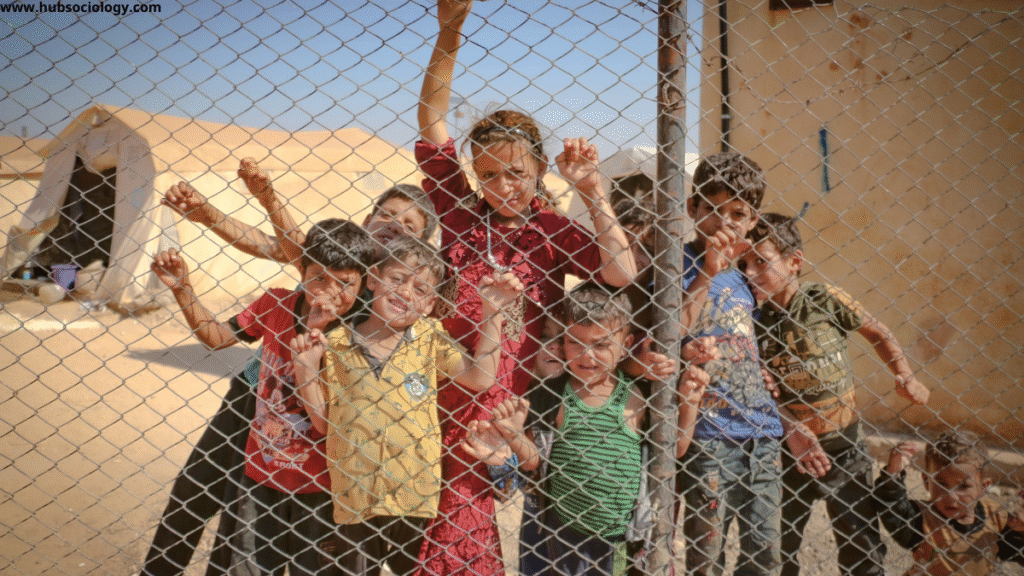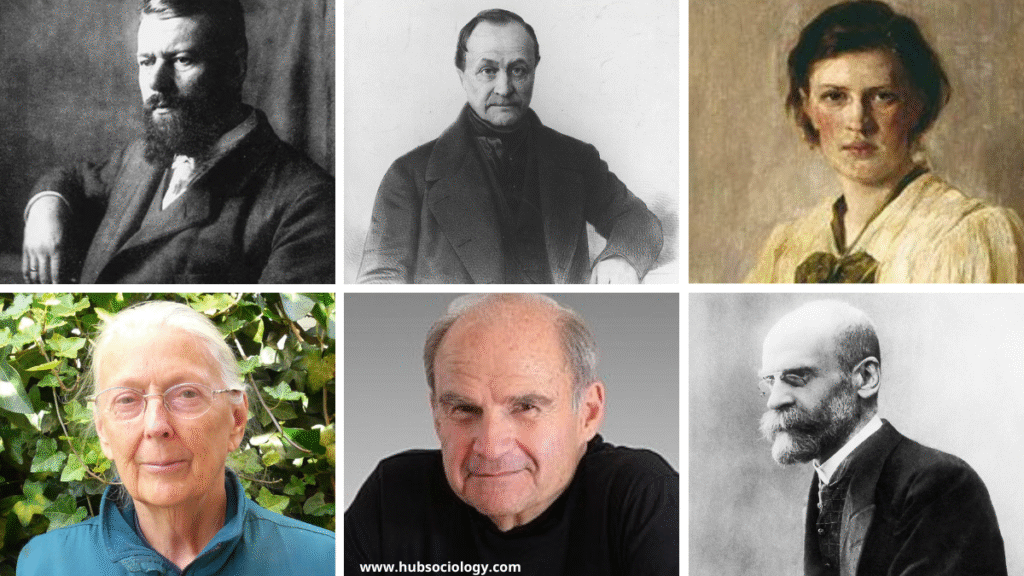Introduction
The scientific study of society, human behavior, and social relationships is known as sociology. At its core, the sociological perspective encourages individuals to look beyond personal experiences and consider broader social forces that shape human life. This perspective challenges common-sense assumptions by analyzing how social structures, institutions, and cultural norms influence individual and collective behavior.
The sociological perspective allows us to see the world differently—not just as a series of personal choices but as a complex web of social influences. By adopting this viewpoint, we can better understand issues like inequality, deviance, socialization, and social change. This article explores the sociological perspective, its key concepts, and its importance in analyzing society.

Understanding the Sociological Perspective
The sociological perspective is rooted in the idea that individual behavior cannot be fully understood in isolation. Instead, sociologists examine how society shapes people’s actions, beliefs, and opportunities. This perspective is often contrasted with the psychological approach, which focuses on individual mental processes, whereas sociology looks at the broader social context.
1. The Sociological Imagination
One of the foundational concepts in sociology is C. Wright Mills’ idea of the “sociological imagination.” Mills (1959) argued that the sociological imagination enables individuals to see the connection between personal troubles and public issues. For example, unemployment may seem like a personal failure, but when millions face joblessness due to economic recession, it becomes a societal issue requiring structural solutions.
The sociological imagination helps us distinguish between:
- Personal Troubles: Private problems experienced by individuals (e.g., debt, divorce).
- Public Issues: Widespread social problems affecting large groups (e.g., economic inequality, systemic racism).
By developing this perspective, we recognize that many personal struggles are influenced by larger social forces.
2. The Three Major Sociological Perspectives
Sociologists use different theoretical frameworks to analyze society. The three primary perspectives are:
A. Structural-Functionalism
According to this viewpoint, society is a complicated system with interdependent pieces that cooperate to keep things stable. Key thinkers like Émile Durkheim and Talcott Parsons argued that social institutions (family, education, religion) serve essential functions to keep society running smoothly.
- Example: Education socializes individuals, prepares them for the workforce, and promotes social cohesion.
However, critics argue that functionalism overlooks social inequalities and conflicts.
B. Conflict Theory
Conflict theory, which is based on Karl Marx’s theories, highlights social injustices and power struggles. It argues that social structures benefit the powerful (e.g., capitalists) while oppressing others (e.g., workers).
- Example: Wealth inequality is not accidental but a result of capitalist exploitation.
Modern conflict theorists also examine race, gender, and other forms of oppression.
C. Symbolic Interactionism
This micro-level perspective, developed by George Herbert Mead and Herbert Blumer, focuses on how individuals create meaning through social interactions. It studies symbols, language, and everyday behavior.
- Example: A handshake symbolizes trust, while a frown conveys disapproval.
Unlike macro-level theories, symbolic interactionism examines how people interpret and shape their social world.
Why the Sociological Perspective Matters
Adopting a sociological perspective has several benefits:

1. Challenging Stereotypes and Biases
Sociology encourages critical thinking by questioning taken-for-granted assumptions. For instance, instead of blaming poverty on laziness, sociologists examine systemic barriers like lack of education, discrimination, and economic policies.
2. Understanding Social Change
By analyzing historical and contemporary trends, sociology helps explain social movements (e.g., civil rights, feminism) and technological impacts (e.g., social media’s role in activism).
3. Informing Policy and Advocacy
Sociological research influences policies on education, healthcare, criminal justice, and welfare. For example, studies on racial profiling have led to police reforms.
4. Enhancing Empathy and Global Awareness
Sociology fosters cross-cultural understanding by comparing different societies. It helps us appreciate diverse lifestyles and challenges ethnocentrism (judging other cultures by one’s own standards).
Applying the Sociological Perspective to Real-World Issues
Let us look at two current topics to demonstrate the sociological viewpoint:
1. The COVID-19 Pandemic
At first glance, the pandemic seemed like a purely medical crisis. However, sociology reveals deeper social dimensions:
- Inequality in Healthcare: Low-income and minority groups faced higher infection rates due to crowded living conditions and lack of access to healthcare.
- Work and Class Differences: White-collar workers shifted to remote work, while blue-collar workers risked exposure in essential jobs.
- Government Responses: Policies like lockdowns and stimulus checks reflected societal values about public health vs. economic stability.
2. Social Media and Mental Health
While social media connects people, sociologists study its effects on self-esteem, privacy, and polarization.
- Symbolic Interactionism: How do online interactions shape identity and relationships?
- Conflict Theory: Do tech companies exploit user data for profit?
- Functionalism: Does social media serve a functional role in modern communication, or does it disrupt social cohesion?
Conclusion: Seeing Beyond the Obvious
The sociological perspective transforms how we perceive the world. Instead of attributing social phenomena solely to individual choices, sociology reveals the hidden structures and cultural forces at play. Whether analyzing poverty, education, or technology, this perspective provides a deeper, more nuanced understanding of human behavior.
We become better informed citizens who can think critically and engage with societal challenges with empathy when we develop a sociological imagination. As sociologist Peter Berger (1963) stated, sociology helps us see “the general in the particular”—recognizing that our personal experiences are part of a larger social tapestry.

In a rapidly changing world, the sociological perspective remains an essential tool for navigating complexity, fostering justice, and envisioning a better society.
Do you like this this Article ? You Can follow as on :-
Facebook – https://www.facebook.com/hubsociology
Whatsapp Channel – https://whatsapp.com/channel/0029Vb6D8vGKWEKpJpu5QP0O
Gmail – hubsociology@gmail.com
Topic Related Questions
5-Mark Questions (Short Answer)
- Define the sociological perspective.
- What is the sociological imagination according to C. Wright Mills?
- Name the three major sociological perspectives and their key thinkers.
- How does symbolic interactionism differ from conflict theory?
- Give an example of how social institutions function in society (using structural-functionalism).
- How does sociology challenge common stereotypes?
- What is the difference between personal troubles and public issues?
- How did Karl Marx contribute to conflict theory?
- Explain one way sociology helps in policymaking.
- Why is ethnocentrism a concern in sociological studies?
10-Mark Questions (Brief Essay/Application-Based)
- Explain the concept of the sociological imagination with an example.
- Compare and contrast structural-functionalism and conflict theory in analyzing education.
- How does symbolic interactionism explain the role of language in shaping social reality?
- Discuss how the COVID-19 pandemic can be analyzed using the sociological perspective.
- Why is the sociological perspective important in understanding social inequality?
- How do sociologists use the three major perspectives to study crime and deviance?
- “Social media influences human behavior.” Analyze this statement from a sociological viewpoint.
- How does sociology help in developing empathy and global awareness?
- Discuss the role of sociology in challenging racial and gender stereotypes.
- Explain how personal problems can be linked to broader social structures.
15-Mark Questions (Long Essay/Critical Analysis)
- “The sociological perspective allows us to see the general in the particular.” Discuss this statement with examples.
- Evaluate the strengths and weaknesses of the three major sociological perspectives.
- How can the sociological imagination be applied to understand unemployment in modern society?
- “Social change is driven by conflict rather than consensus.” Critically analyze this statement using conflict theory.
- Examine the impact of globalization from a sociological perspective.
- How does sociology contribute to solving real-world problems like poverty or discrimination?
- Compare the functionalist and conflict perspectives on the role of the family in society.
- “Technology is reshaping social interactions.” Discuss this statement using sociological theories.
- How does ethnocentrism affect cross-cultural understanding, and how can sociology address it?
- “Sociology is not just about studying society but changing it.” Do you agree? Justify your answer.

1 thought on “The Sociological Perspective: Seeing the World Differently”